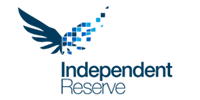 Independent Reserve, the leading digital currency exchange in Australia, has become the first Australian exchange of its kind to be regulated. Independent Reserve will be regulated by the Australian Transaction Reports and Analysis Centre (AUSTRAC).
Independent Reserve, the leading digital currency exchange in Australia, has become the first Australian exchange of its kind to be regulated. Independent Reserve will be regulated by the Australian Transaction Reports and Analysis Centre (AUSTRAC).
Digital currencies have seen dramatic gains in price in recent years. One of the elements that appealed to many early adopters was the fact that many digital currencies operated outside the control of Central Banks and Governments.
The rate at which prices of many of the leading digital currencies have increased has been a result of widespread adoption at a retail level. However, Institutional Investors has been a little slower to get on board.
Digital currencies are now at a turning point. Regulation around the world is starting to play an important role. And from the perspective of institutional investors, this is a positive step forward for the fledgling asset class. To support the demands of the Institutional Investor, Independent Reverse announced last month the launch of Australia’s First OTC Desk for Digital Currencies.
This week, Independent Reserve, an Australian Digital Currency Exchange become the first exchange of its kind to be regulated.
Independent Reserve will now be regulated by the Australian Transaction Reports and Analysis Centre (AUSTRAC). AUSTRAC was established in 1989 and ensures Australian institutions conform to the required standards around Counter-Terrorism Financing and Know Your Customer rules.
Last year, Parliament voted on a bill to strengthen the nation’s anti-money laundering laws and give AUSTRAC new powers to police digital currency exchanges. Under these new laws, it is now an offense for an “unregistered person” to provide digital currency exchange services.
Additionally, these businesses are required to establish, implement and maintain an AML/CTF (anti-money laundering and counter-terrorism financing) program and to report threshold transactions and suspicious matters to AUSTRAC, and keep appropriate records.
As interest in digital currencies continues to grow, regulation is an important step forward. Allowing digital currencies to fall into line with other asset classes.

Independent Reserve CEO Adrian Przelozny believes that this marks a giant leap forward for digital currencies in Australia.
“We have been lobbying for increased regulation since we opened for business in 2014. We passionately believe that the digital currency economy will – and should – become just another part of the mainstream economy. In order for that to happen, digital currency needs to be regulated just like any other asset class. This is an excellent new step on that journey,” said Mr Przelozny.
AUSTRAC is a leading globally regulator, which will help to establish firm rules for digital currency exchanges. The move will be a boost to the sector as it will help establish confidence in what is still a relatively new asset class.
“All investors should be able to feel safe when investing in a new market. I’m so pleased that AUSTRAC has shown such leadership in this area, making Australia a more attractive marketplace for investors of all kinds.”
“I think Australians are used to having a great deal of certainty and trust in the investment options available to them, which is testament to the strength of our financial system. Lack of regulation prior to now has almost certainly played a role in this, but we have seen attitudes changing over the past 12 months as people understand digital currencies better,” he said.
As interest continues to grow in digital currencies, regulation will allow more opportunities for both institutional and retail investors.
“Independent Reserve is already used by many SMSFs and advisors across Australia. This new regulation will enable us to work even more closely with these highly regulated market participants,” said Mr Przelozny.
Mr Przelozny believes that increasing the level of regulation will only encourage more investors to expand into the new asset class.
“I think for some retail, like SMSFs, this will make a big difference. I think the financial advice community will start to feel more comfortable thinking about digital currency as part of client portfolios as more regulation comes into play, and AUSTRAC is an important first step in that,” he said.
Mr Przelozny feels that there is still work to be done to continue to bring digital currencies into the mainstream investment community. However, Independent Reserve is pushing hard for this to happen.
 “As a Board member of the Australian Digital Currency Association (ADCA) we are constantly working with industry bodies to provide education and insight to the digital currency industry, and this includes dialogue around what regulation might look like. Ultimately we want digital currency to be as regulated and accepted as any other asset class – one plank in a diverse Australian financial market,” he said.
“As a Board member of the Australian Digital Currency Association (ADCA) we are constantly working with industry bodies to provide education and insight to the digital currency industry, and this includes dialogue around what regulation might look like. Ultimately we want digital currency to be as regulated and accepted as any other asset class – one plank in a diverse Australian financial market,” he said.
In the US, the SEC has begun the process of regulating the various digital currency exchanges and bringing up the standards of the sector as whole. Mr Przelozny is hopeful there will be more regulation on the way in Australia.
“We hope and expect that regulators here and overseas will continue to strengthen oversight of the digital currency economy,” he said.
Independent Reserve was founded in 2013, with the goal of bringing digital currencies to Australian investors. They have been pushing for regulation in a bid to build investor confidence and grow the asset class in Australia.
Since Independent Reserve began operating, the interest in digital currencies has only grown. They are now operating Australia’s first OTC desk, designed specifically for institutions. As well as servicing a large number of retail investors.
“We have grown enormously, with a team of 30 now from four when we first opened our doors. We are seeing flows of 5-10 million per day and service 1% of Australia’s SMSF community,” said Mr Przelozny.
AUSTRAC requires the following from cryptocurrency exchanges:
– Adopting and maintaining an AML/CTF program to identify, mitigate and manage money laundering and terrorism financing risks;
– Identifying and verifying the identities of their customers;
– Reporting to AUSTRAC suspicious matters, and transactions involving physical currency of $10,000 or more;
– Keeping certain records for seven years.
Businesses must enroll on the ‘Digital Currency Exchange Register’ by May 14, 2018. AUSTRAC explained the consequences in a statement: “There will be criminal offence and civil penalty consequences if you provide digital currency exchange services without being registered”.













